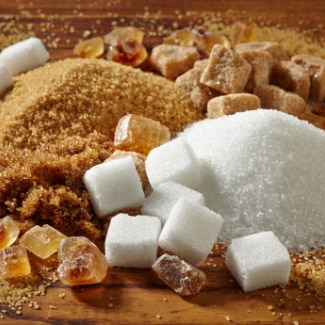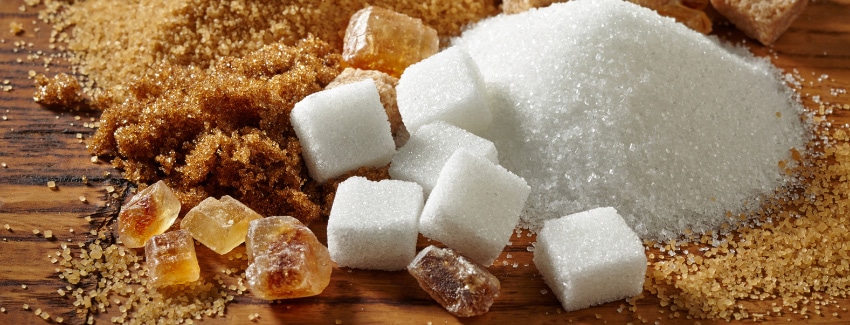

Without compromising high-quality flavor, alternative sweeteners can provide economic benefits for producers and health benefits for consumers. When you choose an alternative sweeter best suited for your needs, it can be a valuable and versatile tool for all your future food and drink products, but with all the options available, it may be daunting to know where to start. Northwest Naturals is here to help!
What is the Difference Between Alternative Sweeteners and Regular Sweeteners?
White table sugar (also called sucrose) is the most common sweetener used in sweet desserts and baked goods. The most common types include cane or beet sugar, corn syrup, high fructose corn syrup, and invert sugar. They are typically inexpensive and used in high quantities in many foods. These sugars contribute four calories per gram.
Alternative sweeteners can be natural or artificial. Many contribute little or no calories, and a small quantity can achieve high levels of sweetness. Compare this to white table sugar which needs to be used in high quantities to reach the same sweetness level.
Benefits of Alternative Sweeteners
Natural alternative sweeteners are attractive on labels since they appear as foods customers can recognize. They also contain small amounts of vitamins, antioxidants, or minerals and can be created organically.
Additionally, as previously stated, producers can use less quantity of some natural sweeteners to achieve high sweetness levels – often with little to no added calories depending on the sweetener used.
Examples of Alternative Sweeteners
The world of alternative sweeteners is divided into “Artificial” and “Natural.” Here is a list of some options you might come across.
- Artificial – It requires much less quantity to achieve the same sweetness as regular sugar.
- Aspartame (Nutrasweet, Equal)
- Acesulfame Potassium aka Ace K (Sunnett, Sweet One)
- Saccharin (Sweet ‘N Low, Sweet Twin, Sugar Twin)
- Sucralose (Splenda)
- Artificial – Sugar Alcohols
- Erythritol (This is great for low-calorie products!)
- Xylitol
- Sorbitol
- Natural – Natural alternative sweeteners are attractive on marketing labels, although they can tend to be more expensive. Examples include:
- Honey
- Dates
- Maple Syrup
- Agave Nectar/Syrup
- Allulose
- Pro Tip! This product is on the rise! It contributes roughly 10% of the calories of regular sugar and is about 70% sweet. It is naturally found in trace amounts in figs, raisins, molasses, and maple syrup.
- Natural “Novel” Sweeteners
- Allulose
- Monk Fruit Extract
- Stevia
Alternative Sweeteners Northwest Naturals Offers
Depending on the customer’s specifications, Northwest Naturals uses alternative sweeteners in various projects and applications like low-calorie sweets or simply using pear or pineapple syrup as a cleaner-label alternative to sugar or corn syrup. It has provided our team with extra knowledge of how best to use these products.
At Northwest Naturals, we offer:
- Agave Syrup (Light and Dark), Monk Fruit Extract, Stevia, Erythritol.
- Pear Syrup and Pineapple Syrup in juice blends.
- These are natural sugar sources but are more clean-label than regular sugar or corn syrup.
- We also ask our customers what kind of sugar they desire.
Application Recommendations for Alternative Sweeteners
Replacing white sugar and corn syrup with alternative sweeteners is a healthy and cost-effective way to create low-calorie baked goods, jams, candies, and other sweets. Low-calorie beverages such as seltzer and ready-to-drink cocktails, like mules and mojitos, are also fantastic options when thinking of possible applications for your alternative sweeteners. However, you can use alternative sweeteners anywhere you use regular, white, table sugar. The possibilities are endless!
Contact us to find the right sweetener for your upcoming project!
